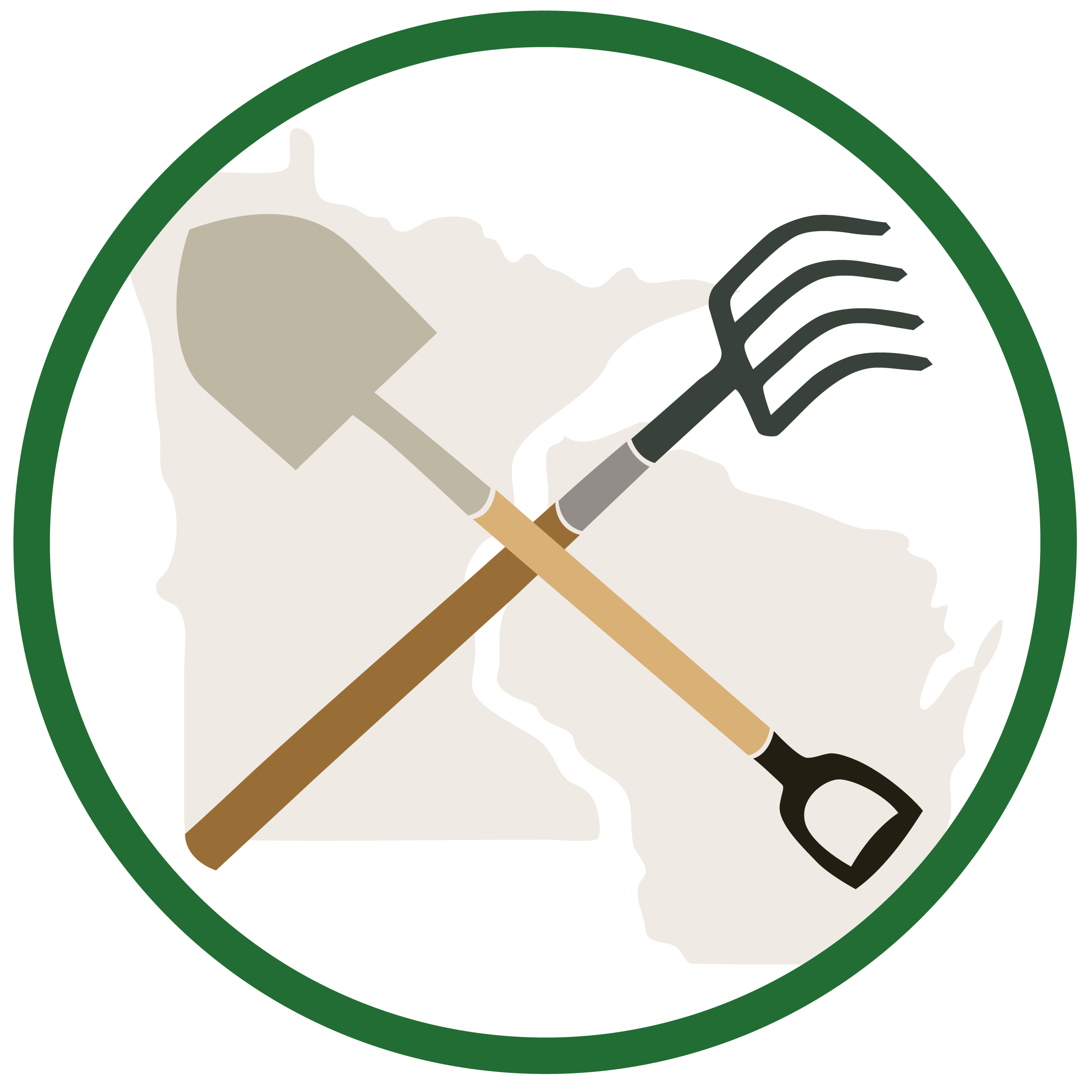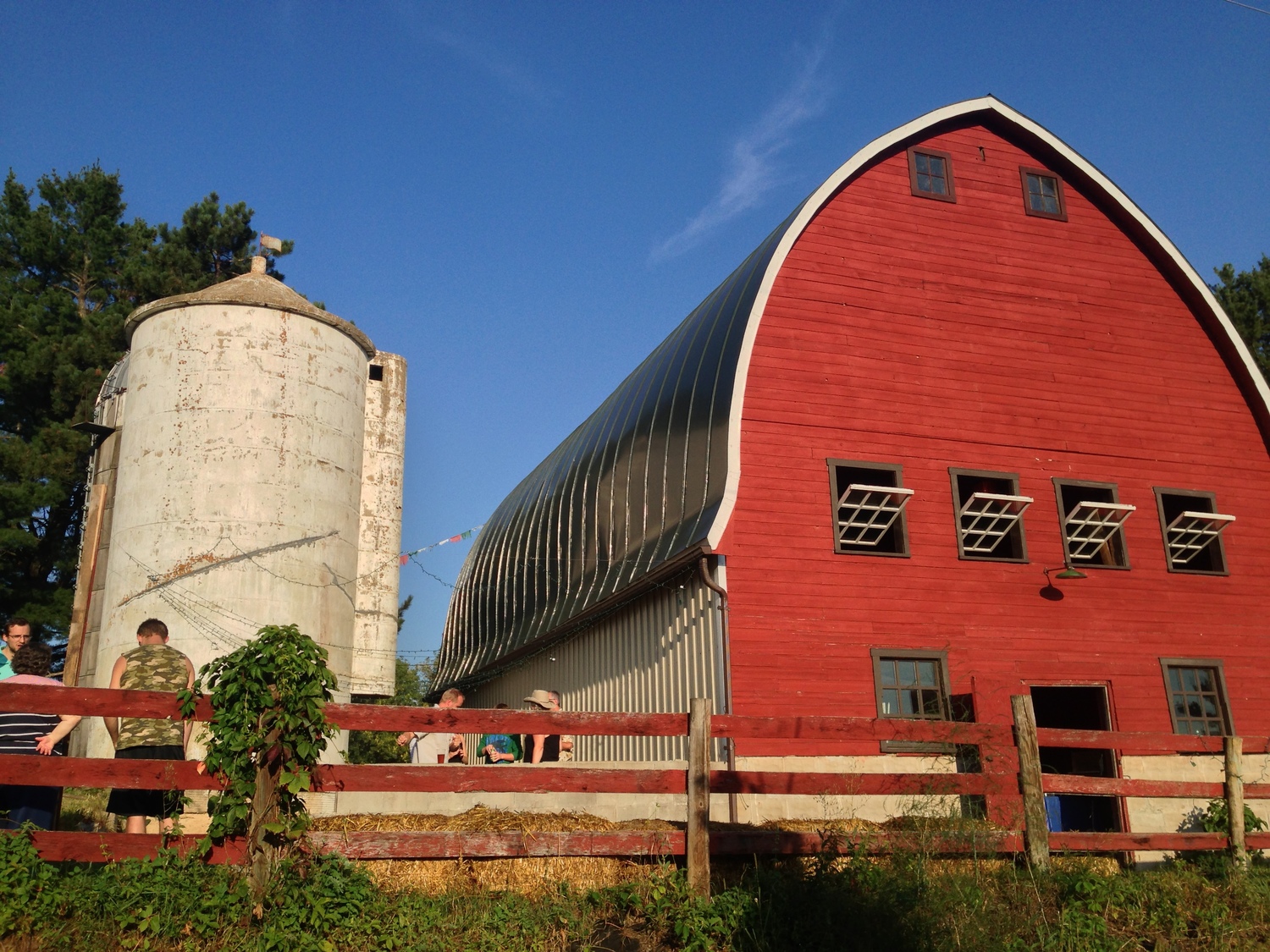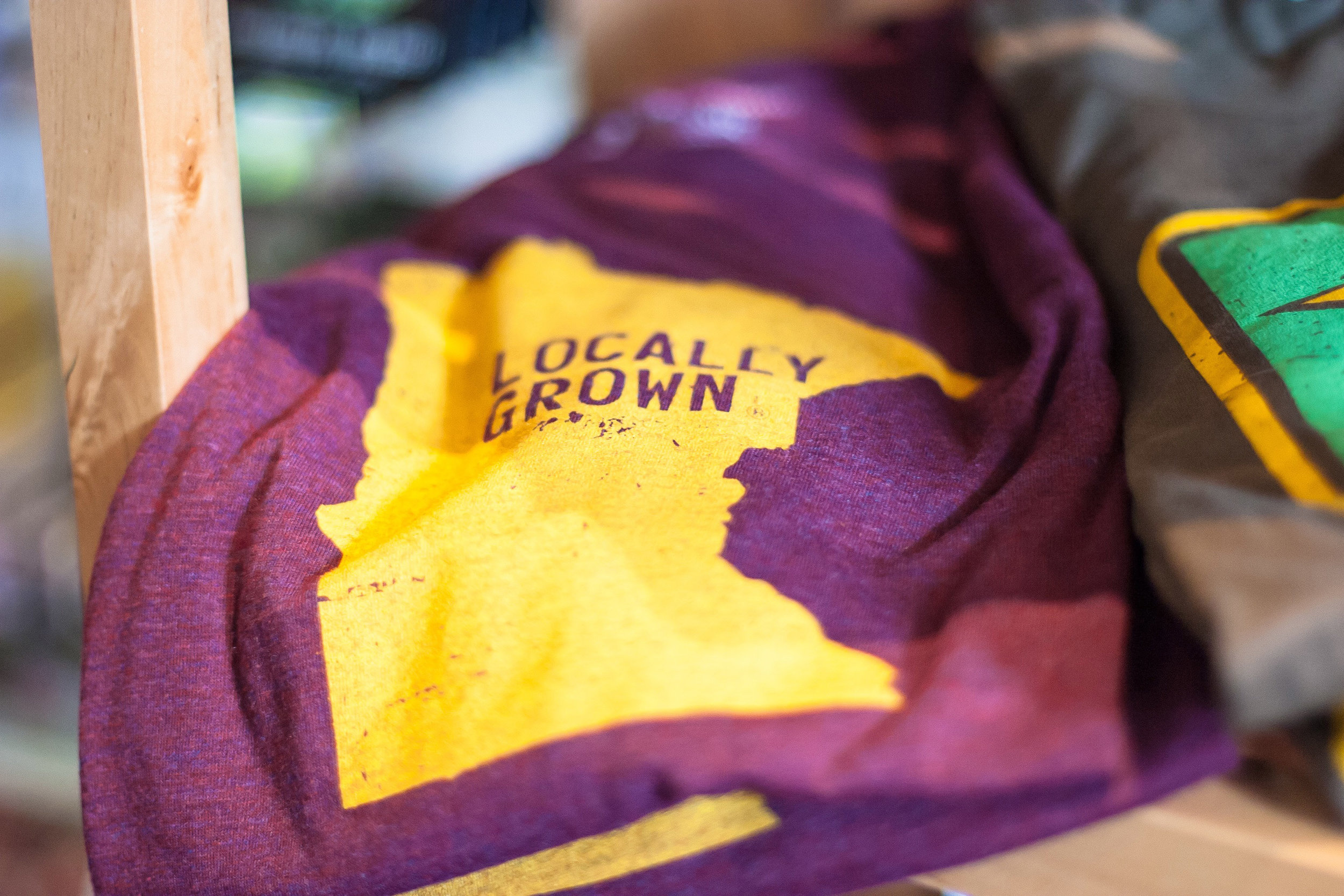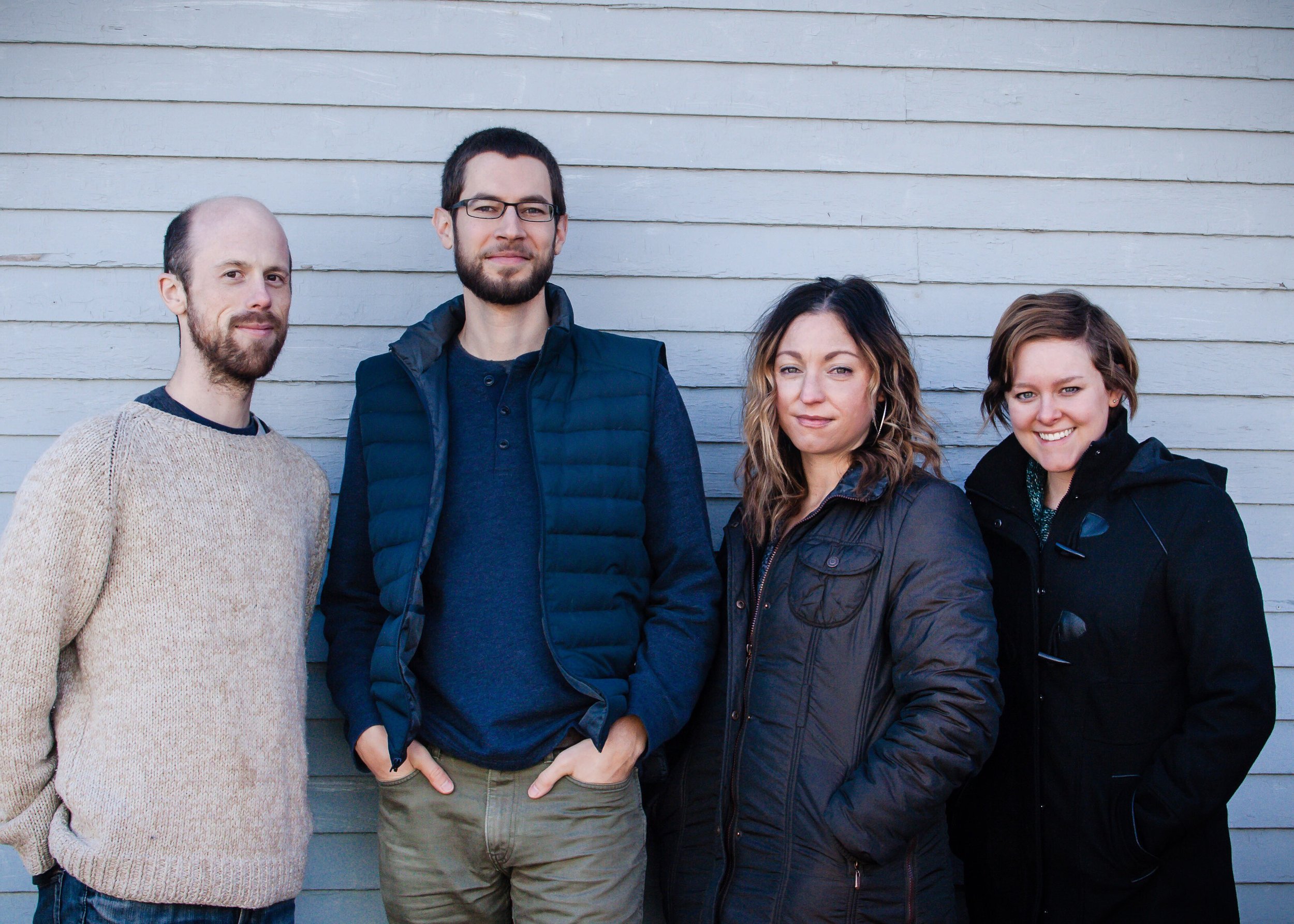Matt Frank
...is the founder of From the Ground Up North, a digital resource hub for those interested in learning more about regional sustainable agriculture-based businesses, grassroots organizations, nonprofits, educators, farmers, advocates and artists throughout greater Minnesota and Wisconsin with a focus on both urban and rural spaces and the connections in between. FTG Up North offers free, accessible stories, resources, research reports, an interactive local foods map, and third-party hosted sustainable agriculture events as ways for people to learn more and get involved in a thriving local food scene and economy Up North. They strive to cultivate awareness of food system issues, related social inequalities, and opportunities for improving equitable access to human and environmental health.

Talk about the beginnings of From the Ground Up North.
From the Ground (FTG) Up North began earlier this year and is the culmination of years of personal interest in urban agriculture, healthy living and eating, regenerative design, sustainable landscaping, community development, and food and social justice issues. These passions have grown and matured over the past twelve years living in Minnesota, being connected to the thriving local food and drink scene in the Twin Cities, receiving a Bachelor of Environmental Design, a Permaculture Design Certificate and an Urban Farming Certificate and taking part in an array of professional and volunteer activities related to these passions. FTG Up North combines my personal values, creative skill sets and passions into an initiative that seeks to educate and inform others about healthy foods, healthy environments and healthy communities in the Upper Midwest.
How has your business evolved? How have you evolved?
From the Ground Up North is a fairly new endeavor - it was publicly launched online, through a website and various social media accounts, in March of 2015. Over the past eight months it has grown exponentially in terms of content and the number of followers, subscribers and supporters we have received. We continually add new educational resource sections to the website, such as our local foods map, resource tools page, research reports section and upcoming events calendar. Upon initial launch, monthly featured stories were the major offering, and now the initiative has grown to include an array of additional materials. Four months ago we also started producing and distributing a monthly newsletter named The Harvest that highlights monthly FTG Up North stories, news, resources and upcoming sustainable ag events. Initially, I was taking photos for the FTG Up North website. Over time, we’ve grown our team and gained four additional photographers who are integral to producing our monthly featured stories and provide beautiful visuals that aid in bringing them to life. FTG Up North photographers include Vanessa Cambier, Luke Gliddon, Lauren Carpenter and Amanda Reuter.
Why is sustainable agriculture so vital to Minnesotans? To the world?
Sustainable agriculture is vital to Minnesotans, Wisconsinites, Midwesterners and the rest of the world because it provides people with delicious, nutritious foods and utilizes far less fossil fuels and chemical fertilizers, pesticides and herbicides than conventional agriculture, both of which aid in improving human and environmental health. In order to live healthy lives we need to recognize humans’ important role as members of the larger environmental community instead of entities that try to control or dominate it. When the Earth is polluted, disregarded and ‘dominated’ as a result of human actions, we end up negatively impacting ourselves in the end.
What are you hoping to highlight, support, or inspire through FTG Up North?
FTG Up North serves as a digital resource hub for those interested in learning more about regional sustainable agriculture-based businesses, grassroots organizations, nonprofits, educators, farmers, advocates and artists throughout greater Minnesota and Wisconsin with a focus on both urban and rural spaces and the connections in between. FTG Up North offers free, accessible stories, resources, research reports, an interactive local foods map, and third-party hosted sustainable agriculture events as ways for people to learn more and get involved in a thriving local food scene and economy Up North. We strive to cultivate awareness of food system issues, related social inequalities, and opportunities for improving equitable access to human and environmental health. It is our hope that people visit our site, follow the initiative, get involved in advocating for healthy living and sustainable agriculture practices within their immediate local communities and ultimately become tenants of healthy living for the benefit of everyone. We hope to inspire people to recognize the current environmental, social and economic inequalities within conventional agricultural systems and take action to change the way we produce, process and distribute healthy foods.
Why do you think a localized economy is important?
Localized economies are incredibly important because they support small local businesses and the environmental and social values they hold dear. Local businesses support localized economies which keep more money within their immediate communities than corporations operating on a national or global scale, resulting in improved services, products and customer service. This in turn creates a greater sense of ownership and connection between local customers, clients and businesses, especially when business models are cooperatively owned and operated.
How has living in Minnesota impacted your efforts?
As a native Chicagoan, living in Minnesota the past twelve years has given me a greater connection to farming, environmental recreation and natural resources. This in turn has affected my world view and personal values. There’s definitely a greater sense of environmental and agricultural stewardship in Minnesota and the Twin Cities than I was used to growing up in Chicago and Illinois. A great example - I think Minnesota has the largest number of grocery cooperatives in the entire country, while Chicago has none and Illinois as a whole has only a small handful. This example depicts Minnesotans’ direct connection to sustainable agricultural practices and support of local growers and food economies.
Also, as one of the largest metropolitan areas in the country with the greatest rate of racial inequalities, The Twin Cities has definitely had an affect on my personal values and worldview. This has shaped my view that all people, no matter their age, race, cultural or gender identity, religious views, or income level should have direct access to affordable, healthy, nutritious foods and healthy environments in which to live. Unfortunately, this is rarely the case locally or globally. FTG Up North strives to profile people and places that are affecting positive change for the greater benefit of all.
Talk about the fulfillment that comes from running FTG Up North.
FTG Up North has become a wonderful creative outlet that allows me to utilize my passions, skills and interests. It’s been a great way to meet wonderful people doing amazing things, connect directly with a like-minded community, and network across organizations, people and cultures. The initiative has also been a great learning tool and has enabled me to continue learning about issues I hold dear. Producing creative content is rewarding in that I'm able to see something tangible through from inception to completion, and when it’s something that inspires and educates others it becomes rewarding on a whole other level.
What are a few simple things that people could do to bring sustainable agriculture into their everyday lives?
Simple things that people can do to bring sustainable agriculture into their everyday lives include shopping for locally produced foods and supporting local growers through joining a grocery cooperative, buying a community supported agriculture share, or shopping at farmers markets or locally owned and operated farm-to-table restaurants. Another great way for people to have direct access to sustainable agriculture practices is through growing their own food on a small scale. This can be done on a large range of scales - from growing potted herbs in your kitchen, to planting edible window boxes or raised beds on balconies, to planting annual and perennial vegetable and fruit crops in your yard. Growing your own food is an incredibly affordable way for people to have a direct connection to healthy foods. For those looking to grow significant amounts of food and/or looking to grow food within a larger community, joining an edible community garden is a great option. Also, partnering up with neighbors and growing food to share amongst yourselves is a very rewarding endeavor and another great way to directly connect to sustainable agriculture practices, the earth and the local community. People looking to learn more can also read FTG Up North’s featured stories, attend third-party hosted events listed on our calendar, and check out our additional sustainable agriculture resources including research reports, books, publications, policies, websites and videos.
What are your hopes for the future of FTG Up North?
The possibilities are endless! I hope we continue to gain subscribers and followers who share in our vision and support the work we do. I hope to continue educating and inspiring others about the environmental, economic and social benefits of the vast array of sustainable agriculture practices. I hope to inspire others to become stewards of the land and one another.
In the near term, we hope to release a few additional resource sections on the FTG Up North website this winter. Eventually, we may try to start producing more than one feature story per month, but at this point it serves as a good way to consistently produce and distribute new material. In the long term, we may begin offering sustainable agriculture education programming and/or design and consulting work. At some point we may also evolve and transition from a grassroots collaborative into either a nonprofit organization or a for-benefit corporation. We also hope to continue partnering with local organizations and eventually host local sustainable agriculture-based public events revolving around education, hands-on opportunities and tasty local foods. Who knows? We may eventually expand outside of our current Minnesota and Wisconsin-based focus and cover people and places throughout the Midwest or the rest of the country. Only time will tell….
Check out From the Ground Up North to read about their efforts to learn, engage, grow, and restore!






